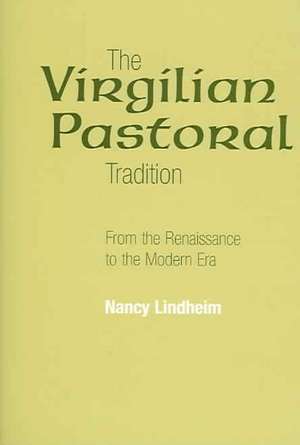The Virgilian Pastoral Tradition: From the Renaissance to the Modern Era
Autor Nancy Lindheimen Limba Engleză Hardback – 26 oct 2005
Preț: 453.22 lei
Nou
Puncte Express: 680
Preț estimativ în valută:
86.72€ • 91.03$ • 71.98£
86.72€ • 91.03$ • 71.98£
Carte indisponibilă temporar
Doresc să fiu notificat când acest titlu va fi disponibil:
Se trimite...
Preluare comenzi: 021 569.72.76
Specificații
ISBN-13: 9780820703725
ISBN-10: 0820703729
Pagini: 389
Dimensiuni: 152 x 228 x 30 mm
Greutate: 0.68 kg
Editura: Duquesne University Press
Colecția Duquesne University Press (US)
ISBN-10: 0820703729
Pagini: 389
Dimensiuni: 152 x 228 x 30 mm
Greutate: 0.68 kg
Editura: Duquesne University Press
Colecția Duquesne University Press (US)
Cuprins
The Shepheardes Calendar as Virgilian Pastoral; Pastoral and Masque at Ludlow; Pastoral and Georgic in Lycidas; The Inclusion of Fable: Daphnis and Chloe and Fearie Queene 6; As You Like It: "Hast Any Philosophy in Thee, Shepherd?"; The Winter's Tale as Pastoral Tragicomedy; The Exclusion of Song: Wordsworth and Beckett; Index.
